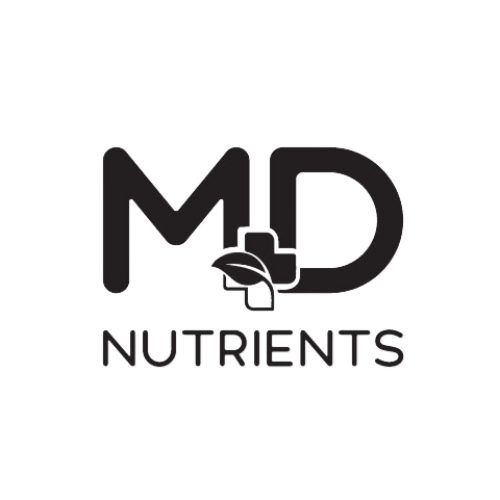Introduction: Understanding Probiotics
Probiotics are live microorganisms, often referred to as "good" bacteria, that confer numerous health benefits when consumed in adequate amounts. While they are most commonly associated with gut health, emerging research reveals that probiotics can also positively impact various aspects of overall health, including immune function and mental well-being. Understanding the full range of benefits that probiotics offer can empower individuals to make informed decisions about their health and wellness.
Benefits of Probiotics for Immune Health
One of the most significant benefits of probiotics is their ability to enhance immune function. Here’s how probiotics support the immune system:
1. Strengthening the Gut Barrier
The gut is a crucial component of the immune system, housing a large portion of the body's immune cells. Probiotics help maintain the integrity of the gut lining, preventing harmful pathogens from entering the bloodstream and triggering inflammatory responses.
2. Modulating Immune Response
Probiotics can influence the activity of immune cells, promoting a balanced immune response. They help regulate the production of cytokines—proteins that are essential for cell signaling in the immune system—thus supporting both innate and adaptive immunity.
3. Enhancing Antibody Production
Certain probiotic strains have been shown to boost the production of antibodies, which are vital for fighting infections. By stimulating the immune system, probiotics can help the body respond more effectively to pathogens.
4. Reducing the Severity and Duration of Infections
Research suggests that probiotics may help reduce the incidence and duration of respiratory and gastrointestinal infections. By outcompeting harmful bacteria for resources and space in the gut, probiotics can lower the risk of infection and disease.
Probiotics and Mental Well-being
The connection between gut health and mental well-being has garnered increasing attention, often referred to as the "gut-brain axis." Here’s how probiotics can support mental health:
1. Regulating Mood
Probiotics may play a role in the production of neurotransmitters, such as serotonin and dopamine, which are crucial for mood regulation. A healthy gut microbiome can positively influence neurotransmitter balance, potentially alleviating symptoms of anxiety and depression.
2. Reducing Stress and Anxiety
Certain probiotic strains have been found to reduce cortisol levels, the body's primary stress hormone. By helping to mitigate stress, probiotics can improve overall mental resilience and emotional health.
3. Enhancing Cognitive Function
Emerging research suggests that probiotics may improve cognitive performance by promoting healthy brain function. A balanced gut microbiome is essential for optimal brain health, supporting memory, focus, and overall cognitive abilities.
4. Supporting Sleep Quality
A healthy gut microbiome can also contribute to better sleep quality. Probiotics may help regulate sleep patterns by influencing the production of sleep-related hormones, promoting restorative rest.
Choosing the Right Probiotic Supplement
When selecting a probiotic supplement, consider the following factors:
1. Strain Diversity
Different probiotic strains offer varying health benefits. Look for a supplement that contains a diverse range of strains to maximize the potential benefits.
2. CFU Count
CFU (colony-forming units) indicates the number of live bacteria in a probiotic. A higher CFU count does not always mean better effectiveness, but a supplement should typically contain at least 1 billion CFUs for optimal benefits.
3. Specific Health Goals
Choose a probiotic that aligns with your health goals. Some strains are better suited for gut health, while others may be more effective for immune support or mental well-being.
4. Quality and Purity
Opt for reputable brands that conduct third-party testing for quality and potency. Check for certifications and avoid products with unnecessary additives or fillers.
5. Storage Requirements
Some probiotics require refrigeration, while others are shelf-stable. Be sure to follow storage instructions to maintain potency.
Incorporating Probiotics into Your Routine
Integrating probiotics into your daily routine can be easy and enjoyable:
1. Probiotic Supplements
Take high-quality probiotic supplements daily, following the recommended dosage. Consider taking them with meals to enhance absorption.
2. Fermented Foods
Incorporate naturally fermented foods into your diet, such as yogurt, kefir, sauerkraut, kimchi, and kombucha. These foods are rich in probiotics and offer a delicious way to boost gut health.
3. Prebiotic Foods
Prebiotics are non-digestible fibers that feed beneficial gut bacteria. Include prebiotic-rich foods like garlic, onions, asparagus, and bananas in your diet to support the growth of probiotics.
4. Mindful Eating
Practice mindful eating to enhance gut health. Chew food thoroughly, eat slowly, and pay attention to hunger and fullness cues to support digestion and overall gut function.
5. Consistency
For optimal benefits, make probiotics a consistent part of your health routine. Regular intake is key to maintaining a balanced gut microbiome and reaping the benefits of probiotics.
Conclusion: Enhance Your Health with Probiotics
Probiotics offer far more than just gut health benefits; they can significantly enhance immune function, support mental well-being, and contribute to overall health. By understanding the diverse advantages of probiotics and incorporating them into your daily routine, you can take proactive steps toward a healthier, more balanced lifestyle. Whether through supplements or fermented foods, harness the power of probiotics to unlock their full potential and support your journey to optimal health.


